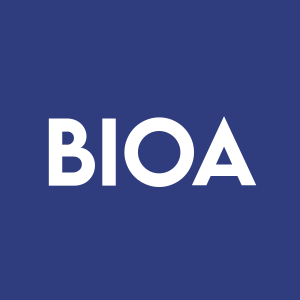Leqembi (lecanemab) authorized for early Alzheimer's disease in Great Britain
Rhea-AI Summary
BioArctic AB announced that its partner Eisai received Marketing Authorization from the MHRA in Great Britain for Leqembi (lecanemab) to treat mild cognitive impairment and mild dementia due to Alzheimer's disease in specific adult patients. This marks the first authorization in Europe for a medicine targeting an underlying cause of Alzheimer's disease.
Lecanemab selectively binds to and clears toxic Aβ protofibrils from the brain. The approval was based on the Phase 3 Clarity AD clinical trial, which met its primary and key secondary endpoints. Common adverse reactions include infusion-related reactions and amyloid-related imaging abnormalities.
Eisai is working with health authorities to make Leqembi available to eligible patients. The antibody was originally developed by BioArctic, resulting from a collaboration with Eisai.
Positive
- First authorization in Europe for a medicine targeting an underlying cause of Alzheimer's disease
- Successful Phase 3 Clarity AD clinical trial results
- Potential to slow the progression of early Alzheimer's disease
- Collaboration with health authorities to make the treatment available
Negative
- Common adverse reactions including infusion-related reactions and amyloid-related imaging abnormalities
Insights
The approval of Leqembi (lecanemab) in Great Britain marks a significant milestone in Alzheimer's disease treatment. As the first therapy targeting an underlying cause of the disease approved in Europe, it represents a paradigm shift in management strategies. The drug's mechanism of action, binding to toxic Aβ protofibrils, addresses a key pathological feature of Alzheimer's.
The Clarity AD trial results supporting this approval are promising, showing statistically significant improvements in both primary and secondary endpoints. However, it's important to note the safety profile, particularly the risk of ARIA-H and ARIA-E, which will require careful monitoring in clinical practice.
This approval could potentially benefit a substantial population, given the high prevalence of Alzheimer's in the UK. However, the specific indication for ApoE ε4 heterozygotes or non-carriers in early stages of the disease narrows the eligible patient pool, which is an important consideration for both clinicians and health economists.
The authorization of Leqembi in Great Britain opens up a significant new market for BioArctic and Eisai. With an estimated
The collaboration between BioArctic and Eisai, along with their joint commercialization plans for the Nordic region, positions them well to capitalize on this approval. The next critical step will be pricing and reimbursement negotiations with NICE, SMC and NHS, which will ultimately determine market access and uptake.
Investors should closely monitor these negotiations and initial uptake rates, as they will be key indicators of Leqembi's commercial potential in the European market. The UK approval could also pave the way for broader European acceptance, potentially expanding the drug's market reach significantly.
"The decision from MHRA to authorize lecanemab is an important step forward for eligible patients in
Lecanemab selectively binds to Aβ aggregate species, with preferential activity for toxic Aβ protofibrils[3] (as well as fibrils, which are a major component of Aβ plaques). Lecanemab binds to these aggregate Aβ species to neutralize and clear them from the brain. [4],[5],[6]
The approval was mainly based on Phase 3 data from the global Clarity AD clinical trial, in which the medicine met its primary endpoint and all key secondary endpoints with statistically significant results.[4] In the indicated population in
It is estimated that 982,000 people live with dementia in the
Eisai is working collaboratively with the National Institute for Health and Care Excellence (NICE), the Scottish Medicines Consortium (SMC) and the National Health Service (NHS) to make this medicine available to eligible people living with early Alzheimer's disease as soon as possible.
Lecanemab is the result of a long-standing collaboration between BioArctic and Eisai, and the antibody was originally developed by BioArctic based on the work of Professor Lars Lannfelt and his discovery of the Arctic mutation in Alzheimer's disease. Eisai serves as the lead of Leqembi development and regulatory submissions globally with both Eisai and Biogen co-commercializing and co-promoting the product and Eisai having final decision-making authority. BioArctic has the right to commercialize lecanemab in the Nordic region and pending European approval Eisai and BioArctic are preparing for a joint commercialization in the region.
This information is information that BioArctic AB (publ) is obliged to disclose pursuant to the EU Market Abuse Regulation. The information was released for public disclosure, through the agency of the contact persons below, on August 22, 2024, at 11.05 a.m. CET.
For further information, please contact:
Oskar Bosson, VP Communications and IR
E-mail: oskar.bosson@bioarctic.se
Phone: +46 70 410 71 80
Jiang Millington, Director Corporate Communications and Social Media
E-mail: jiang.millington@bioarctic.se
Phone: +46 79 33 99 166
About lecanemab (Leqembi®)
Lecanemab is the result of a strategic research alliance between BioArctic and Eisai. It is a humanized immunoglobulin gamma 1 (IgG1) monoclonal antibody directed against aggregated soluble (protofibril) and insoluble forms of amyloid-beta (Aβ).
Lecanemab's approval in
The primary endpoint was the global cognitive and functional scale, CDR-SB.[2] In the Clarity AD clinical trial, treatment with lecanemab, in the indicated population in
In addition, the secondary endpoint from the AD Cooperative Study-Activities of Daily Living Scale for Mild Cognitive Impairment (ADCS-MCI-ADL), which measures information provided by people caring for patients with AD, noted
In the indicated population (ApoE ε4 heterozygotes or non-carriers), the most common adverse reactions were infusion-related reaction (
Lecanemab is licensed in the
This medicine is subject to additional monitoring. This will allow quick identification of new safety information.
About the collaboration between BioArctic and Eisai
Since 2005, BioArctic has a long-term collaboration with Eisai regarding the development and commercialization of drugs for the treatment of Alzheimer's disease. The most important agreements are the Development and Commercialization Agreement for the lecanemab antibody, which was signed 2007, and the Development and Commercialization agreement for the antibody Leqembi back-up for Alzheimer's disease, which was signed 2015. In 2014, Eisai and Biogen entered into a joint development and commercialization agreement for lecanemab. Eisai is responsible for the clinical development, application for market approval and commercialization of the products for Alzheimer's disease. BioArctic has the right to commercialize lecanemab in the Nordic region under certain conditions and is currently preparing for commercialization in the Nordics together with Eisai. BioArctic has no development costs for lecanemab in Alzheimer's disease and is entitled to payments in connection with regulatory approvals, and sales milestones as well as royalties on global sales.
About BioArctic AB
BioArctic AB (publ) is a Swedish research-based biopharma company focusing on innovative treatments that can delay or stop the progression of neurodegenerative diseases. The company invented Leqembi® (lecanemab) – the world's first drug proven to slow the progression of the disease and reduce cognitive impairment in early Alzheimer's disease. Leqembi has been developed together with BioArctic's partner Eisai, who are responsible for regulatory interactions and commercialization globally. In addition to Leqembi, BioArctic has a broad research portfolio with antibodies against Parkinson's disease and ALS as well as additional projects against Alzheimer's disease. Several of the projects utilize the company's proprietary BrainTransporter™ technology, which has the potential to actively transport antibodies across the blood-brain barrier to enhance the efficacy of the treatment. BioArctic's B share (BIOA B) is listed on Nasdaq Stockholm Large Cap. For further information, please visit www.bioarctic.com.
About NHS, NICE and SMC
The National Health Service (NHS) is a public healthcare system with the principle of providing free medical services to citizens. The National Institute for Health and Care Excellence (NICE), and the Scottish Medicines Consortium (SMC) are independent bodies that carry out assessments on the status of all newly licensed medicines, all new formulations of existing medicines and new indications for established products regarding their health benefits and price justification as an advisory boards to the National Health Service (NHS) about whether or not a newly licensed drug should be accepted for use under national health insurance.
[1] Apolipoprotein E is a protein involved in the metabolism of fats in humans. It is implicated in Alzheimer's disease.
[2] Lecanemab Great Britain Summary of Product Characteristics
[3] Protofibrils are large Aβ aggregated soluble species of 75-5000 Kda
[4] van Dyck, H., et al. Lecanemab in Early Alzheimer's Disease. New England Journal of Medicine. 2023;388:9-21. https://www.nejm.org/doi/full/10.1056/NEJMoa2212948
[5] Johannesson, M., et al. Lecanemab demonstrates highly selective binding to Aβ protofibrils isolated from Alzheimer's disease brains. Molecular and Cellular Neuroscience. 2024;130:103949. https://doi.org/10.1016/j.mcn.2024.103949
[6] Sehlin, D., et al. Large aggregates are the major soluble Aβ species in AD brain fractionated with density gradient ultracentrifugation. PLoS One. 2012;7(2):e32014. https://doi.org/10.1371/journal.pone.0032014
[7] ARIA-H: amyloid-related imaging abnormalities with hemorrhage (combined cerebral microhemorrhages, cerebral macrohemorrhages, and superficial siderosis).
[8] ARIA-E: amyloid-related imaging abnormalities with oedema (edema/effusion).
[9] Alzheimer's Society. 2024. The economic impact of dementia. Available at: https://www.alzheimers.org.uk/about-us/policy-and-influencing/dementia-scale-impact-numbers. Last accessed: August 2024.
[10] World Health Organization. 2023. Dementia. Available at: https://www.who.int/news-room/fact-sheets/detail/dementia. Last accessed: August 2024
This information was brought to you by Cision http://news.cision.com
The following files are available for download:
Leqembi (lecanemab) authorized for early Alzheimer’s disease in |
![]() View original content:https://www.prnewswire.com/news-releases/leqembi-lecanemab-authorized-for-early-alzheimers-disease-in-great-britain-302228485.html
View original content:https://www.prnewswire.com/news-releases/leqembi-lecanemab-authorized-for-early-alzheimers-disease-in-great-britain-302228485.html
SOURCE BioArctic







